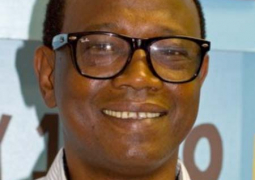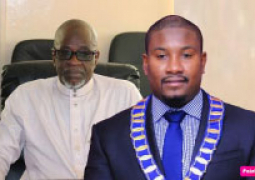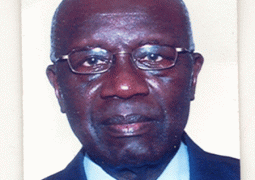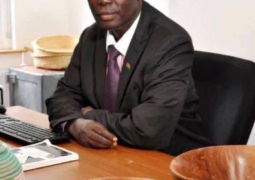Time and again he would drive him in his Benz to go shopping. He would also drive him to places of importance. He really felt at home. And at school, he was always at the top of his class, coming out with flying colours. His teachers loved him so much that whenever he needed their assistance concerning his school assignments, they helped him.
He did well in his exams at high school and the government offered him a scholarship. When he finally finished his high school education he obtained an excellent certificate.
One night he lay in his bed but could not sleep. He then sat up, thinking how he was going to further his education abroad. In the morning he asked his guardian if he could assist him pursue a higher education. “Why not, Dudu?” said his guardian. “You know I am childless and I always look upon you as my son. Whatever you want, I will make sure that you get it. Your father and I did our childhood in his village. Where do you want to further your education?”
“In Europe,” the boy responded. “I want to help my parents when I come back. Honestly, I want to take them from that terrible condition.”
“Do you know any schools in Europe?”
“Yes, I have the address of one of them.”
His guardian then told him to write to the school immediately. He did so and the school responded by sending him some forms to fill. He sent them back to the school after filling them. All the financial requirements for the duration of the course were made. The school wrote an acceptance letter to him and stated that they were looking forward to welcoming him.
His hope shattered when he was refused a visa. He could not believe what happened. All the necessary documents required to obtain a visa he presented. He was refused a visa because he could not convince the issuing officer that he would come back after finishing his education. He could feel tears coming to his eyes. His heart could not accommodate his ordeal. He told his guardian what had happened. “No, this is not fair,” he said, still crying.
“I know it is painful, especially after you have paid all the financial requirements to the school which is non-refundable,” his guardian added. “But I have an idea, Dudu.”
“Which idea?” he asked.
“I will open a shop for you so that you can start doing business. You can also further your education here. You know you have a very good certificate. You can attend the university and I will sponsor you. How about that? ”
“But the course I want to pursue is not offered here. It is available in Europe.”
One day he told his guardian that he was going back to his village, for he could not stand his plight. Everything had changed in the village. More people had migrated there. Boys of his age had grown into men. Most of the girls had married. His brother, Wally, had also grown into a man. His mother was getting old.
He joined her one day in her hut and told her that he wanted to go to Europe.
“Why, Dudu?” she asked. But before he answered, his brother joined them.
“He said he wants to go to Europe and I want to know why,” the old woman said.
“You see, mother, I want to further my education, and this is the only place I can do it.”
“Why can’t you stay here and help your brother on the farm?” his mother stated. “You know that we are poor. Where are we going to get the money from to help you go? Your father died and left few cattle to support the family.”
“Why can’t we sell the cattle so that I can go?” stated Dudu.
“To sell what?” his mother asked.
“The cattle,” Dudu repeated.
“Wally, what do you say about that?” the old woman questioned.
“Let’s help him to go, mother.”
His mother gave it a second thought. “It’s alright, Dudu. We will sell the cattle so that you can go. Mark you. You know we have nothing here. If you go there, work very hard and come back and salvage us,” his mother told Dudu.
Dudu had managed to enter Europe illegally. He was lucky to be accommodated by a young man who was his fellow citizen. Sanu, his host, told him that things were not easy there.
“People are always in a rush. You have to work very hard,” Sanu told him.
“I have observed that,” Dudu added.
Sanu managed to secure a job for Dudu at a restaurant through a white man. Dudu would work in the evenings. He would read while he was less busy in the mornings. Although he failed to attend the school he applied for, there was a similar institution in the town he lived. He was able to save enough money to further his education after he had worked for a period of time at different places.
He was one day alone when Sanu had left for his workplace. He started writing a letter to the institution for acceptance. There was a knock on the door. He wondered who it was. He heard another knock.
“Who is that?” he was heard saying.
“Could you please open the door?” someone said outside. He then stood up, walked to the door and unlocked it only to see the faces of some policemen.
“You came here illegally,” one of them told him.
“Please, let me explain,” he said.
But they gave him a deaf ear and arrested him. He was deported immediately. All the efforts he made to further his education bore no fruits. He left that large amount of money behind. He came back with nothing. How was he going to face his brother and mother and tell them his ordeal?
He travelled to his village. But when he reached his home, he found that two or three huts had been swept by heavy rains and the fence really needed some mending. His mother became very old, hardship taking its toll on her. Most of the animals she was rearing were stolen. His brother was deprived of marrying because of the heavy dowry his people were demanding.
He found the same poverty as he was leaving for Europe. He could not believe his eyes when he saw his mother and brother in their bones. The old woman nearly fainted when Dudu told her his predicament. She was now weeping.
“After we sold the cattle, you came back with nothing. You see the hardship you have caused,” she said. She wept bitterly. “Your brother and I have been suffering since you left, thinking that you will change our lives when you come back,” she stated. She cried, coughed and coughed until she nearly collapsed. It was Wally who came to her rescue; he embraced her.
“Mother, let’s leave everything with God,” he was comforting her. “Let’s bear and have faith.”
“Your brother’s going to Europe has made our lives miserable. What about the shame he has brought to the family?” she was still crying.
Dudu was dumb-founded. He kept quiet and did not know what to do. He sat in his brother’s hut. He did not know how this happened to him. He did not know at all. He started meditating day and night. And this nearly led him to madness. He was frustrated.
It was the straw that broke the camel’s back when his mother observed the way he was behaving. Who knows whether she would survive it? His brother took him to another village to be treated locally. What about the cost of his treatment. Another burden!
Dudu buried his head in his hands, his knees supporting his elbows. He cried, cried and cried. He just wanted to commit suicide.





